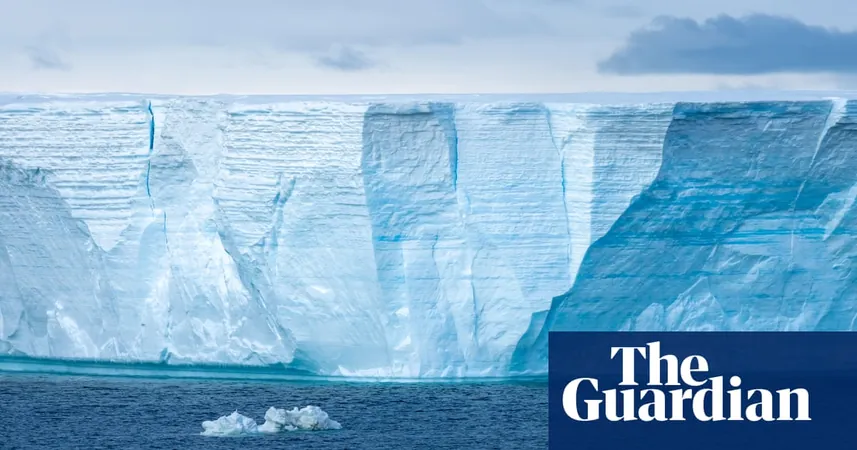
Shocking Halt on Sea Ice Data Could Mean Trouble for Climate Tracking!
2025-07-01
Author: Olivia
A Dire Warning for Climate Scientists
In a move that has left scientists reeling, the US Department of Defense has announced it will cease processing and sharing crucial satellite data essential for monitoring Antarctic and Arctic sea ice levels at the end of this month. This dramatic decision raises concerns about our ability to track the alarming changes occurring at both poles.
The Importance of Sea Ice Data
Sea ice plays a vital role in regulating Earth's climate by reflecting sunlight back into space. However, with record low levels being reported, more of the planet's ocean is exposed, leading to accelerated warming—a scenario that could have catastrophic implications.
Challenges Ahead for Researchers
Scientists rely heavily on the National Snow and Ice Data Center (NSIDC) in Colorado, which maintains a global Sea Ice Index. Recent updates indicate that the government’s data discontinuation will leave researchers scrambling to recreate a consistent record from alternate sources.
Dr. Alex Fraser from the Australian Antarctic Program Partnership has labeled NSIDC's data as the planet’s “number one heart rate monitor,” warning that the loss of this data could severely impede our understanding of critical climate changes.
Research Under Fire as Sea Levels Rise Faster Than Predicted
Recent studies highlight a troubling connection: declining sea ice is linked to increased iceberg calving from ice shelves, potentially accelerating global sea level rise beyond current models. Dr. Sue Cook, another researcher, expressed fears that if we continue relying on outdated models, we might vastly underestimate the risks posed by melting ice in Antarctica.
Dire Consequences for Wildlife
The impact of shrinking sea ice extends beyond climate predictions—it threatens wildlife as well. Reports indicate that around 7,000 emperor penguin chicks perished in late 2022 due to the rapid dissolution of their ice habitat.
Strategic Military Policy or Climate Catastrophe?
A US Navy spokesperson confirmed the data shutdown aligns with a broader Department of Defense policy, emphasizing that the decision was driven by resource constraints and a shift in modernization priorities. However, this decision raises pressing questions about its potential consequences for global climate monitoring.
A Call to Action!
As scientists grapple with this setback, the urgent need to address climate change becomes more apparent. The loss of reliable sea ice data could significantly alter our understanding of global warming and its far-reaching effects. Now, more than ever, the scientific community is calling for renewed commitment and support for climate research—because the stakes couldn’t be higher.









 Brasil (PT)
Brasil (PT)
 Canada (EN)
Canada (EN)
 Chile (ES)
Chile (ES)
 Česko (CS)
Česko (CS)
 대한민국 (KO)
대한민국 (KO)
 España (ES)
España (ES)
 France (FR)
France (FR)
 Hong Kong (EN)
Hong Kong (EN)
 Italia (IT)
Italia (IT)
 日本 (JA)
日本 (JA)
 Magyarország (HU)
Magyarország (HU)
 Norge (NO)
Norge (NO)
 Polska (PL)
Polska (PL)
 Schweiz (DE)
Schweiz (DE)
 Singapore (EN)
Singapore (EN)
 Sverige (SV)
Sverige (SV)
 Suomi (FI)
Suomi (FI)
 Türkiye (TR)
Türkiye (TR)
 الإمارات العربية المتحدة (AR)
الإمارات العربية المتحدة (AR)